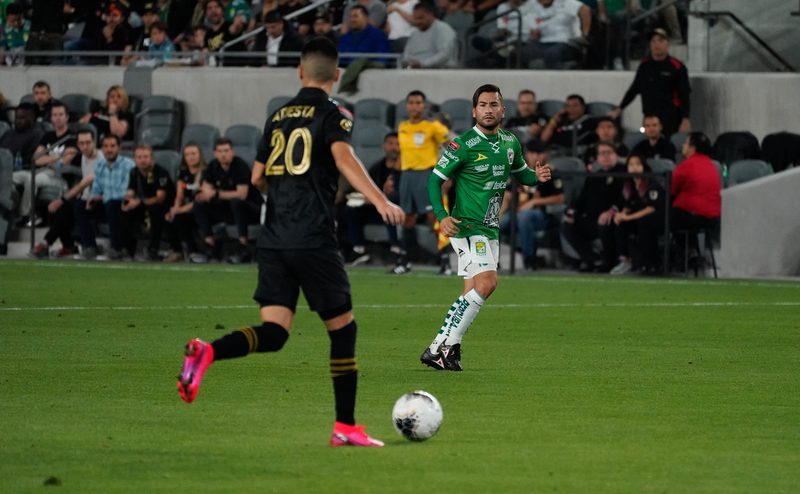Last updated on November 3rd, 2023 at 09:02 am
Promotion and relegation is a hot debate topic with Major League Soccer fans. In the Premier League and LaLiga, the three worst teams in the season’s standings leave the top league, while three teams in the level below with the best records move up a level. In Major League Soccer, there is nothing like that, which is one of the strengths and weaknesses of the league.
So, how do promotions and relegations work in the Premier League and LaLiga? Why doesn’t MLS have promotion and regulation if other leagues have it? What are the pros and cons of having pro/rel in MLS?
Here is the complete breakdown of promotion and relegation in Major League Soccer.
What is Promotion and Relegation in Soccer (Association Football)?
Promotion and relegation in European Football Leagues is a way to reward and penalize teams. For example, the English Premier League is at the very top in the Premier League, and then you have the English League Championship below that. Here is how the two leagues work each year with promotion and relegation to put that into perspective.
The bottom three teams record-wise in the top league move down to the English League Championship next season. With those three spots now open in the top league, the three best records in the English League Championship move into those spots to compete. There is no guarantee that the teams that were once in the top conference will go back. They must secure a top-three record to make it back, incentivizing them to play better.
This promotion and relegation process works through multiple levels outside of those two EPL leagues, but this is just an example. Essentially, teams that don’t perform well move to a lower division, and the teams that perform well who are in a lower division move to the higher league to play.
Why Should MLS Have Promotion and Relegation?
There is a constant debate between MLS fans for why promotion and relegation should be part of the league. Since 1996 was the first season, the league has grown from a handful of teams to potentially 30 in 2023. Here are some reasons why MLS should have promotion and relegation leagues.
Motivates Teams to Win
Major League Soccer offers the Supporters’ Shield and MLS Cup Playoffs to incentivize teams to win each season. However, there is an argument that teams that are mathematically out of the playoff hunt standings don’t try and win games. Since these teams can’t get into the playoffs and won’t go down in level of competition, there is no incentive to try and win games.
With a relegation system in place, no team would want to move out of MLS to a lower level. Moving down to a lower grade means there is no guarantee that you will return to MLS, forcing teams to keep trying to win games toward the end of the year. If you lose the MLS position, you would probably see a decline in ticket sales, which would be another incentive not to have that happen to your squad.
In addition to MLS having teams fighting not to move down to the lower levels, it would encourage teams in the secondary levels to win games to advance to MLS. Having teams compete to win games in the lower levels makes the watchability of the sport better for fans, which helps attract more attention to these leagues.
Forces Teams to Make Trades and Acquire Top Talent
With the designated player rule starting in 2007, MLS teams can spend money above their cap to obtain top talent. Getting top talent helps grow the league with more fan interest, which helps MLS put a better product on the field. If teams are afraid of going down to a lower level of play, they might spend more money on top talent to help increase their chances of having a good year in the standings.
There are Lower-League Levels in North America
Major League Soccer is the top association football league in North America, but the USL Championship is also considered division two soccer. Below them are the USL League One, the National Independent Soccer Association, and the MLS Next Pro.
In theory, the groundwork is there to introduce a pro/rel league between all leagues, which some fans would like to see. Especially if you are a fan of local teams outside of the MLS, it is fun and exciting to see your club make it to the big show if they have an excellent season record.
It Puts MLS on the Same Level as the Premier League and LaLiga, in Theory
One of the loudest debates between fans of the Premier League / LaLiga and MLS is that they have pro/rel, while MLS does not. In theory, fans of the Premier League know that Arsenal, Manchester City, and Chelsea can all go down a level if they don’t perform well in a season. In MLS, the worst three teams stay in the top conference, which annoys fans who want the MLS to be more like the English Premier League system.
Why Shouldn’t MLS Have Promotion and Relegation?
MLS teams shouldn’t have promotion and relegation for a handful of reasons. Most have to do with financial reasons, but here is the complete breakdown of why the league shouldn’t have it.
The Interest in MLS is Growing
Major League Soccer sees average game attendance grow, and more people are watching the sport on TV. Since the league began in 1996, more franchises have entered the partnership, opening more cities and markets to U.S. Soccer.
American sports are typically thought of with the NFL, NBA, MLB, and NHL. The growth of Major League Soccer is catching up to the National Hockey League, which may surprise fans. For example, the 2021 MLS cup had 1.14 million viewers watching the game, while the Stanely Cup Finals in 2021 had an average of 2.43 million viewers.
While the 2021 MLS Cup and Stanley Cup Finals ratings are only one data sample, the gap between MLS and NHL is close. With MLS growing the fanbase as a legitimate sport in the United States, putting promotion and relegation could throw off the momentum.
North American Audiences Might Not Understand Pro/Rel
Fans of the NFL, MLB, NHL, and NBA understand that these leagues are the best of the best. There is no promotion/relegation system in these leagues, so adding that to MLS may be confusing. A pro/rel change per season between teams is nothing other fans in America have to deal with when supporting a professional team, so it might turn off casual fans who are learning more about the sport.
Owners Have to Spend Money to Join the League
The cost of establishing a professional soccer team in the United States keeps increasing each year. For example, Toronto FC paid $10 million to join the league in 2007, while NYCFC paid $100 to enter the league in 2015. Meanwhile, Charlotte FC spent $350 million to join the league in 2022, which shows the growth and value of the league as an investment.
With the cost of establishing a new soccer team being so high, the chance that the team could move to a lower league is not a wise financial decision for owners. Especially how owners are building new stadiums, like Nashville SC opening in May 2022, the idea that all that capital to join a professional league could move to a lower level football league is not a good investment.
The League Operates as a Single Entity
MLS is a single entity, which means that the league owns every team. Owners of the team can help run the team the best way they see fit via trades, but it is similar to how opening up a chain restaurant in a city still needs to adhere to the rules set by the corporation’s headquarters.
Since everything is a single entity, the league’s growth is good for everyone. Some teams are more profitable than others, but expansion fees, TV deals, merchandise, sponsorships, and more go to the league, which helps everyone win financially.
If teams start moving in and out of the top professional soccer league, then the league itself can crumble. For example, let’s say that Seattle Sounders or LA Galaxy, two top-rated MLS teams, had many injuries one year, and both get relegated down to a lower sports league level. Their game-day ticket sales + tv deals will go down next year, which would hurt the league since they are two of the biggest revenue drivers in MLS.
The Sport is too New for this Change
MLS has been around since 1996. Over the years, the league has had many ups and downs. With the current rise of the game, throwing in a pro/rel system could slow down the momentum of the sport. The last thing that MLS wants to do is create an unnecessary reason to turn fans off from the sport.
A Team Can Have a Bad Season Due to Injuries
In England, the Premier League is a big deal. Fans have allegiances to their favorite clubs’ first, second, and third divisions, which isn’t the case in MLS. Most casual fans don’t even know there is a second division in soccer, only MLS. For example, removing New York Red Bulls from MLS could result in fans not coming back to watch other teams.
NASL Lesson + MLS Money Issues
NASL (North American Soccer League) was around from 1968 to 1984. The league collapsed due to financial issues from expanding too fast, U.S economy unemployment growing, poor TV deals, and players’ salaries growing too fast for the league to keep at it. The coalition collapsed because the quality of the sport wasn’t good and had financial issues.
Back in 1994, the United States hosted the FIFA World Cup with the promise of forming a professional soccer league after getting this honor. From 1996 to the early 2000s, the league had financial problems due to a lack of fan support. To help cut costs, the league got rid of Miami Fusion and Tampa Bay Mutiny, along with owners covering other clubs to keep them financially afloat.
In 2007, the designated players’ rule began, bringing David Beckham to LA Galaxy. The designated player rule allows teams to sign up to three players outside of the team’s budget, which brought Beckham to the United States. Beckham, more teams joining the league, and better TV deals + attendance allowed MLS to get to where it is today. Throwing in a pro/rel change could crash this momentum, which is why it is not in the league.
Conclusion: Why Promotion and Relegation is Good and Bad for MLS
In summary, promotion and relegation are not currently part of the structure of MLS. Promotion and relegation are a hot topic debate between fans of MLS. MLS not having a promotion and relegation system is debatable whether it would make the league better or worse.
To recap this topic, at this time, it doesn’t make sense for MLS to have pro/rel. The league is growing, which is important because there have been times when the league was having financial issues. Not to mention that fans remember NASL, so they don’t want a repeat of that mistake.
With Charlotte FC drawing 74 thousand fans on their home opener in March 2022 and MLS working on a new lucrative TV contract, there is a sense that now is not the right time to introduce pro/rel. The idea is to keep expanding the sport to more fans and keep growing the league before as of now. Any discussions of pro/rel are so far just discussions.
Similar Posts:
How Many Players are on a Soccer Team?
Why Do Soccer Games End in a Tie?
What is the Supporters’ Shield?
Greg Kristan, owner of The Stadium Reviews, LLC and TM Blast, LLC, brings his extensive experience visiting over half of the MLB ballparks, along with numerous MLS, NHL, NBA, and NFL venues, to provide in-depth coverage on the bag policy, food options, and parking. He has also been interviewed about his experiences on several sports podcasts.













